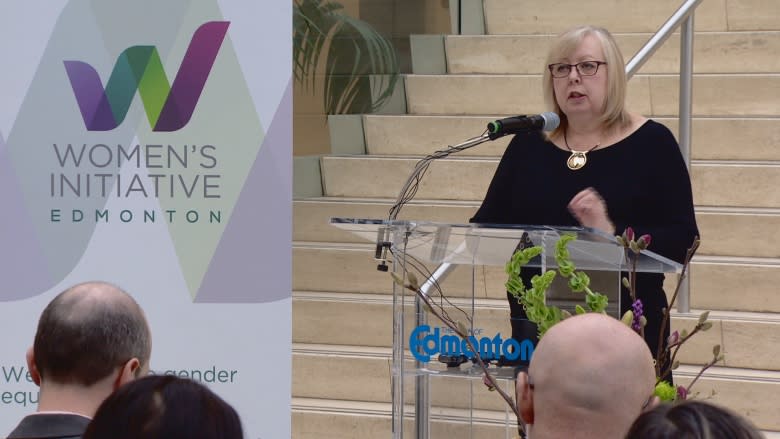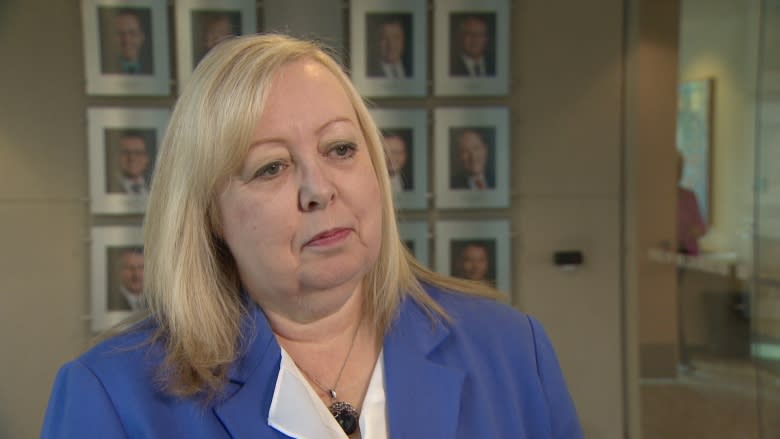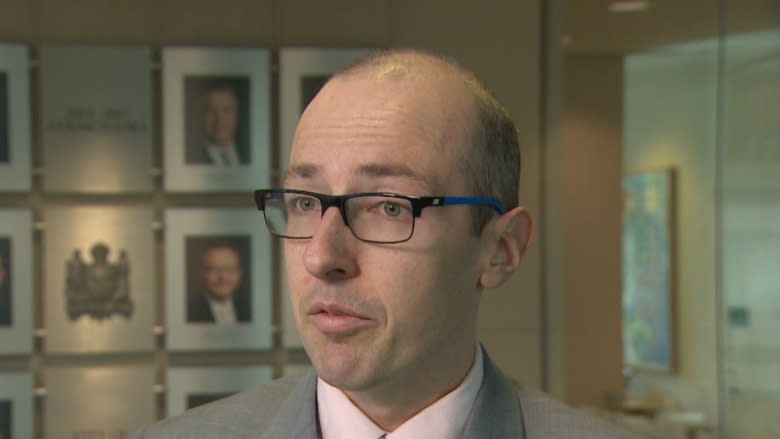Edmonton council still needs more women despite Sarah Hamilton win, councillors say
Bev Esslinger is delighted not to be the only woman on Edmonton city council but having one more female councillor isn't enough to narrow the gender gap on a key decision-making body, advocates say.
"We've doubled our size, so that's a good thing," Esslinger told CBC News on Wednesday.
Esslinger got re-elected in Ward 2 with nearly 54 per cent of the vote over two challengers.
Sarah Hamilton garnered 34 per cent of the vote to win Ward 5 over eight other candidates.
Esslinger said she was more encouraged by the higher number of women who ran this time — 33 per cent in 2017 compared to 20 per cent in 2013.
"This time we had some phenomenal women candidates running," Esslinger said. "Lots of them in one ward, unfortunately."
Five of nine candidates running in Hamilton's ward were women.
The reasons why Edmonton still only has two women on a 12-seat council are not clear so Esslinger says it's worth asking the women who ran.
"Figure out what barriers they were facing," she said. "Is our community ready to have women elected? I believe so."
Coun. Andrew Knack faced three male candidates in the Ward 1 race. He won a second term on Monday with 67 per cent of the vote.
Having another woman on council is positive step, but he was still disappointed by the overall outcome.
"What I really would have liked to have seen [is] that number of candidates, the number of female candidates, be up to 50 per cent."
Knack believes that is ultimately the way to get more women elected.
In 2013, many wards didn't have any female candidates and in 2017, wards one and six didn't have any.
"We tried to reach out," Knack said. "We tried to encourage people to run and unfortunately it didn't work out."
Knack suggested council needs a debrief of the election to figure out how to proceed in the future.
The gender difference
Given that women make up 50 per cent of the Edmonton's population, council should be a better reflection of the community, newcomer Hamilton said.
"There's something to be said of being somewhat representative of the people you're representing," Hamilton suggested.
Sandra Woitas, the chair of Women's Advocacy Voice of Edmonton, said having more women on a municipal council means different choices may be made about child care, safety and even transit.
"The gender lens in which women look at child care may be very different in how a single man looks at child care," Woitas said.
"If we work with women's issues, we're going to have stronger families and stronger communities."
Encouragement is paramount
To get there takes encouragement.
The city and the province have spearheaded programs such as Opening the Potential mentorships at city hall and the Ready for Her campaign last fall.
Having one more woman elected to Edmonton city council shows the programs are working, Esslinger said.
"We want young people to grow up and realize they can do anything they want," Esslinger said.
"If they look at places that have no women, why would they think they're invited to be there."
Hamilton said she feels fortunate to have had a supportive family that "nurtured her talent" over the years.
She considers her mother a huge role model. Another mentor is former mayor Stephen Mandel, whom she used to work for when he was Alberta's minister of health under former Premier Jim Prentice.
It's not just incumbent on women to be supportive of other women, Hamilton said.
"It's a whole society."
The best and worst places to be a woman
Esslinger was a rookie councillor in 2014 when the Canadian Centre for Policy Alternatives deemed Edmonton the worst place in the country for a woman to live.
Victoria, B.C. won the top spot three years in a row, a rank driven in large part by the representation of women in politics.
"Victoria has a female mayor and is the only city in the study to have more women than men on its council," said the 2016 version of the report.
Now, at the beginning of Esslinger's second term, the city is no longer at the bottom of the pack.
In the 2017 report, which ranked 25 municipalities, Edmonton rose from dead last to the 18th spot.
"We have been working hard to improve that [ranking]," Esslinger said. "So every year we're getting better and we'd love to get to the top."





